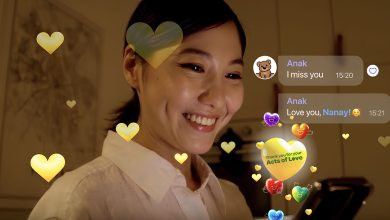SEOUL, SOUTH KOREA — All around the world, domestic abuse is a problem oftentimes silenced by cultural nuances, inaccessible safe spaces, or paralyzing fear. In society, it’s something most people are comfortable pretending is not happening, and among victimized households, it’s a story too traumatizing to share, and a crime too terrifying to report. Such is the case in South Korea, where in the past eight years, domestic abuse cases have increased by 718%, with only 2% reported to the police, according to Cheil Worldwide and the Korean National Police Agency (KNPA)’s findings.
Hence, the creation of the “Knock Knock” campaign, a silent emergency call to report incidents of domestic abuse without the need for speech. This was derived from the finding that most victims don’t call the police to report the incident in fear that it would draw the attention of their abusers, and make matters worse. This is often the case for domestic abuse victims who live in the same space and sleep in the same bed as their abusers.
To delve deeper into this impactful initiative, adobo Magazine sat down with Cheil Worldwide Creative Director Seongphil Hwang, Copywriter Seungree Kang, and Art Director Taeyul Ko back in March at ADFEST 2023. The chat was intended to celebrate the campaign winning an astounding amount of three Grand Prix trophies at Spikes Asia. But since then, “Knock Knock” has only collected more accolades across the globe — a much deserved recognition for a very important campaign.

Opening the door: creation
“Knock Knock” worked exactly as the name suggests: by calling South Korea’s emergency number and then tapping any number twice as if you’re knocking on a door, the KNPA would automatically verify it as a silent emergency call without the need for the caller to say anything. The caller would then be sent a link that opens a camera app connected to the officer at the other end of the line for visibility, and a chat room disguised as a search engine for subtle communication. This allows the victim to call for help without making it obvious to her abuser.
The campaign’s impact was immense. In terms of social impact, the campaign was able to send 5,749 links to silent callers in the first month alone since its launch in September 2022. A few months later, South Korea authorities formally implemented the “Knock Knock” gesture as its official emergency call.
As a piece of advertising work, the campaign has also accumulated an impressive list of wins. With extensive coverage to increase awareness reach via media platforms nationwide and worldwide, the project amassed over 237 million impressions on social and traditional media.
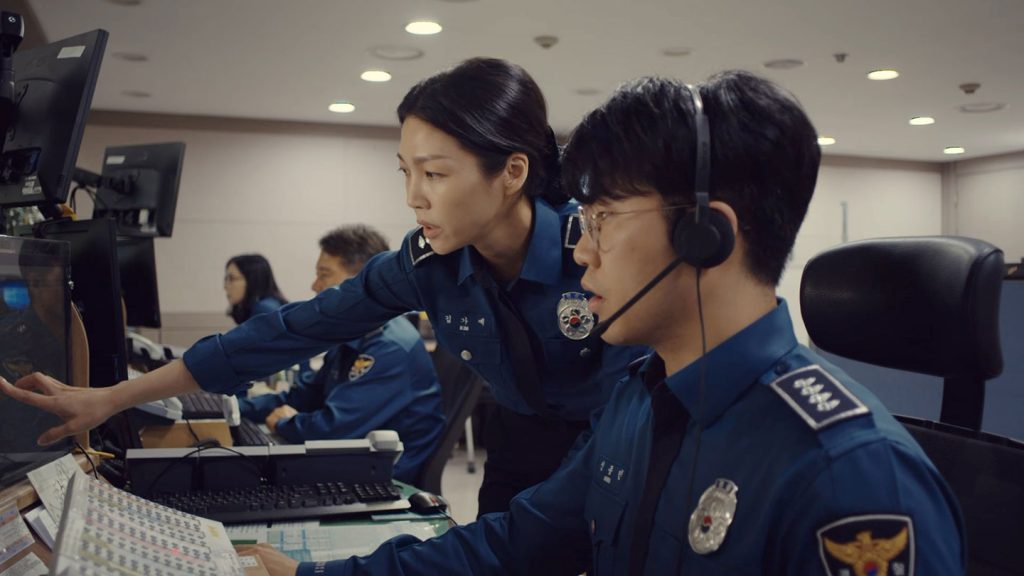
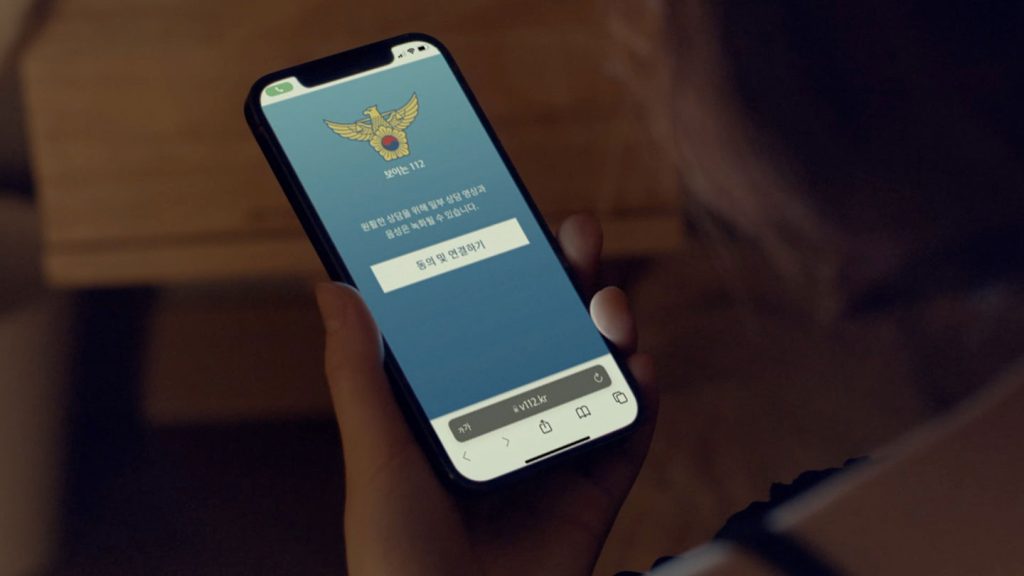

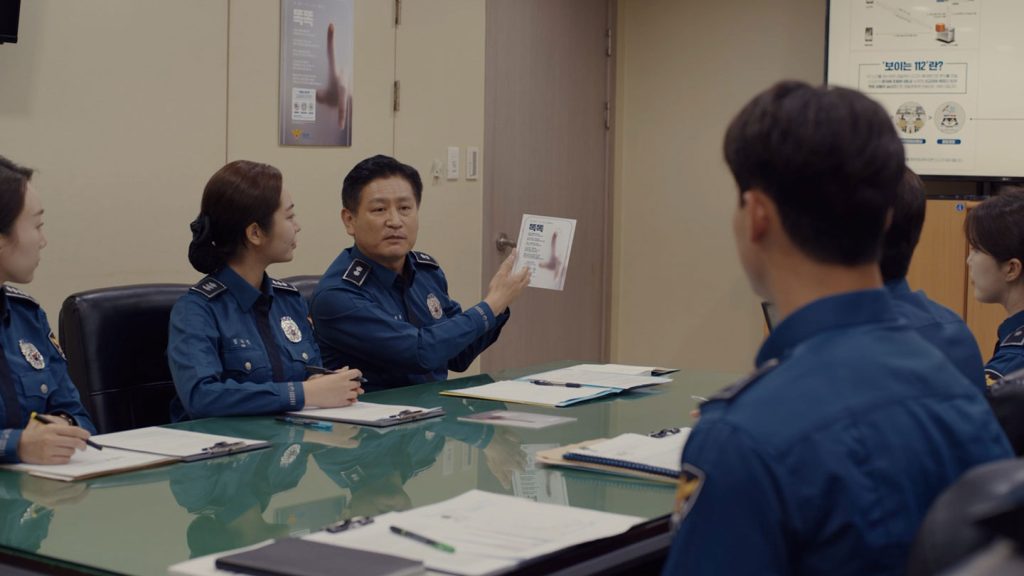

Moreover, it has received the following honors from the advertising industry’s biggest award shows:
CANNES LIONS:
- Grand Prix / The Lion for Change
- Gold / Brand Experience & Activation
- Bronze / Direct
SPIKES ASIA
- Grand Prix / Glass: The Award for Change
- Grand Prix / Media
- Grand Prix / Mobile
- Gold / Brand Experience & Activation
- Gold / Direct
- Silver / Brand Experience & Activation
- Silver / Strategy & Effectiveness
ADFEST
- Grande for Humanity
- Gold / Media
- Gold / Mobile
- Silver / PR
- Bronze / Direct
- Bronze / Effective
- Bronze / Mobile
CLIO
- Gold / Public Relations
- Silver / Direct
- Bronze / Media
ONE SHOW:
- Silver / Interactive, Online & Mobile
D&AD:
- Graphite Pencil / Creative Transformation, Services
- Graphite Pencil / Digital Design, New Services & Tools
- Wood Pencil / Direct, Products & Services
Notably, “Knock Knock” brought home the biggest awards in the humanity-focused categories, namely The Lion for Change Grand Prix at the Cannes Lions International Festival of Creativity, Glass: The Award for Change Grand Prix at Spikes Asia, and the Grande for Humanity at ADFEST. This collection is a testament to the campaign’s creative solution to a very real problem in the world. Through creativity, it has created an initiative that has the power to save lives.

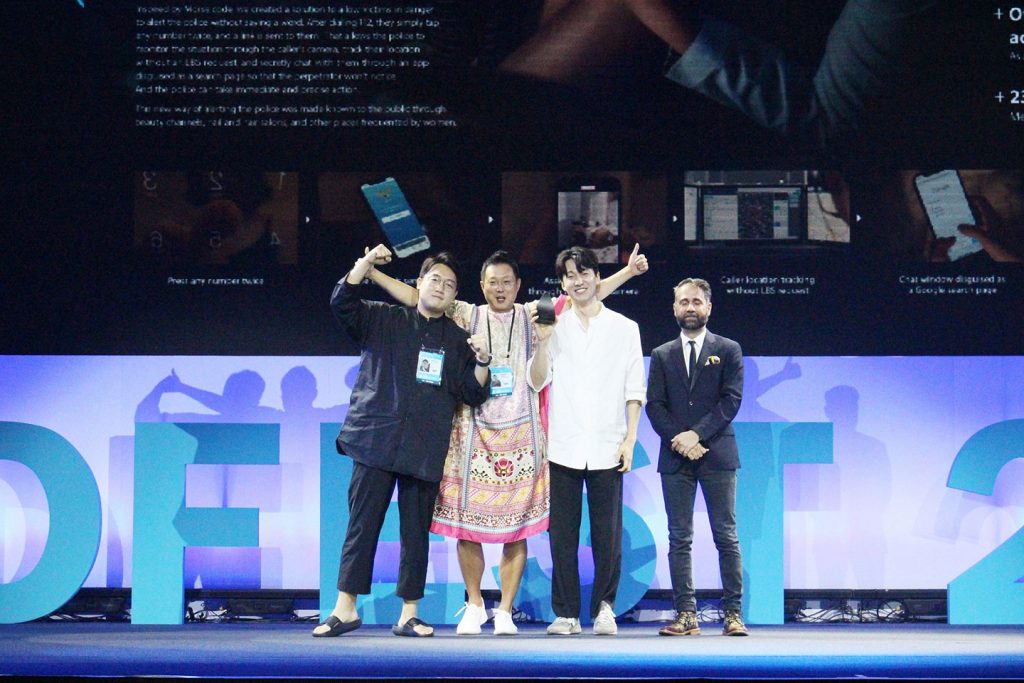
A safe space: collaboration
A big attribute to the success of “Knock Knock” is its seamless integration into the KNPA’s emergency system — a product of open collaboration between the creative agency and the government.
“In Korea, the reporting rate of domestic violence is extremely low, and the police wanted to address this issue. The brief was about finding a way to assist domestic violence victims in a way that meet their needs,” Creative Director Seongphil explained.
“Before ‘Knock Knock,’ some domestic violence victims managed to report to the police by pretending to order food so that the perpetrators wouldn’t notice. However, not every victim can do this, and not every police call handler can catch it. [Perhaps] the fact that ‘Knock Knock’ is an easy, effective, and sustainable solution resonated with our target audience,” Copywriter Seungree noted.
The idea behind tapping the screen twice to activate the call was inspired by Morse Code, the team shared. Efficient yet subtle, the gesture is a key ingredient to the effectiveness of the campaign. It also made emergency calls more accessible to people with speech deficiencies, and safer for people in dangerous situations, which further widens the scope of people who can be helped and saved by the campaign.
Art Director Taeyul added, “Initially, we wanted victims to be able to tap anywhere on their phone, but the police call handlers gave us feedback that tapping on the surface of the smartphone may not work due to surrounding noise, which was a major challenge. But we, along with the KNPA, firmly believed that the Korean people needed this campaign, so we never gave up. After a series of discussions, the call handlers suggested that tapping the ‘buttons’ instead of the ‘surface’ would be more effective, and that’s how we developed the feature.”
For the creative trio of Seongphil, Seungree, and Taeyul, the creative process for this award-winning project was the same as all their other collaborative work. “Coffee, discussion, and cigarettes,” they told us with a laugh. “There’s no big process, but our daily routine led us to a great idea.”
The team stressed their firm belief that dynamic ideas are oftentimes created through dynamic discussions. Hence, the comfortable environment they create during brainstorming sessions helps ideas, even the seemingly wild ones, pop out to be heard and explored. “We don’t waste our time creating beautiful keynotes. Instead, we engage in a lot of discussions. We ask ourselves questions like, ‘Does this idea meet our standards?,’Is this idea really working?,’ and ‘Is this idea really worth six months of our time?’ After all the questioning, only one last idea survives, and in this case, it was ‘Knock Knock.’”
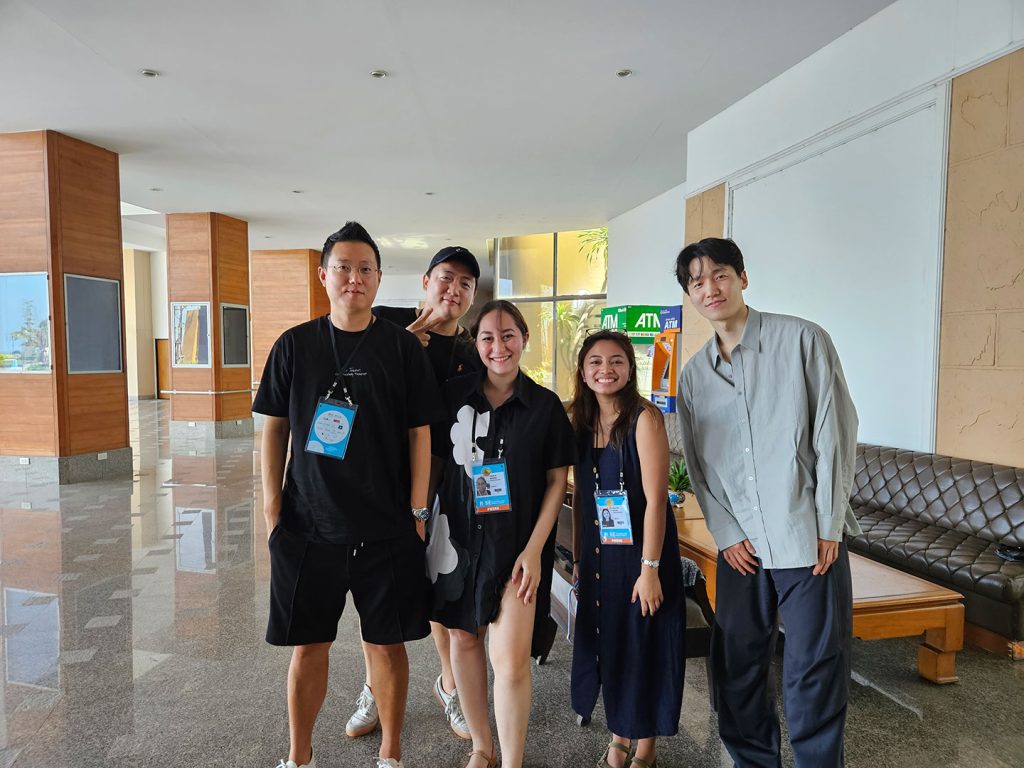
Additionally, they shared that the message they wanted to convey through the campaign was: Don’t give up. “There are thousands of police call handlers waiting to help and hundreds of thousands of police officers ready to take action. So victims of domestic violence should not feel alone and helpless,” they stressed.
Leaving the door open around the world
The trio shared that their biggest hope is for “Knock Knock” to be implemented in other countries, potentially saving millions of domestic abuse victims across the globe. Seongphil also emphasized his hope that the campaign’s international recognitions would lead to worldwide awareness and expansion, bringing more victims into safety and security.
“Winning the Grand Prix is a tremendous honor, and what’s even more gratifying is having the chance to promote ‘Knock Knock’ to people in need through increased publicity. It would be amazing if this system could be adopted in other countries as well. And even now there are thousands of police call handlers who are behind the lines waiting for emergency calls including ‘Knock Knock.’ We wouldn’t have done this without their help. All glory is theirs,” he expressed.
Lastly, when asked about giving advice to younger creatives who want to join the industry, the team emphasized the importance of going beyond advertising. That is, to be open to learning about many things, speaking to people from various backgrounds, and exploring ideas with elements that go beyond strictly what traditional advertising looks like.
“Tech giants, manufacturers, new media, and governments are all connected to what we do. We shouldn’t confine ourselves to our small office but rather make everywhere our office. [Moreover,] copy and art can sometimes clash like cats and dogs, but we need each other just like Nutella and bread to create something truly satisfying. Let’s work together, respect each other’s strengths, and create even more delicious creativity,” they stressed. This integration is apparent in the out-of-the-box ideas they had that fueled the creation of “Knock Knock” combining public security, technology, recreation, search, and more, in one very special project.
With a long list of wins under the campaign’s name, its awards season is still far from being wrapped up with the incoming MAD STARS festival, and the New York Festival Advertising Awards. The creative team at Cheil Worldwide, adobo Magazine, and the rest of the industry eagerly await what other recognitions “Knock Knock” will receive, and how it would further its mission to lead domestic abuse victims to safety.



